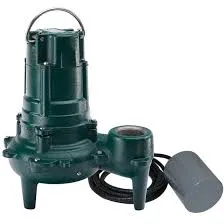English
- Afrikaans
- Albanian
- Amharic
- Arabic
- Armenian
- Azerbaijani
- Basque
- Belarusian
- Bengali
- Bosnian
- Bulgarian
- Catalan
- Cebuano
- Corsican
- Croatian
- Czech
- Danish
- Dutch
- English
- Esperanto
- Estonian
- Finnish
- French
- Frisian
- Galician
- Georgian
- German
- Greek
- Gujarati
- Haitian Creole
- hausa
- hawaiian
- Hebrew
- Hindi
- Miao
- Hungarian
- Icelandic
- igbo
- Indonesian
- irish
- Italian
- Japanese
- Javanese
- Kannada
- kazakh
- Khmer
- Rwandese
- Korean
- Kurdish
- Kyrgyz
- Lao
- Latin
- Latvian
- Lithuanian
- Luxembourgish
- Macedonian
- Malgashi
- Malay
- Malayalam
- Maltese
- Maori
- Marathi
- Mongolian
- Myanmar
- Nepali
- Norwegian
- Norwegian
- Occitan
- Pashto
- Persian
- Polish
- Portuguese
- Punjabi
- Romanian
- Russian
- Samoan
- Scottish Gaelic
- Serbian
- Sesotho
- Shona
- Sindhi
- Sinhala
- Slovak
- Slovenian
- Somali
- Spanish
- Sundanese
- Swahili
- Swedish
- Tagalog
- Tajik
- Tamil
- Tatar
- Telugu
- Thai
- Turkish
- Turkmen
- Ukrainian
- Urdu
- Uighur
- Uzbek
- Vietnamese
- Welsh
- Bantu
- Yiddish
- Yoruba
- Zulu
Telephone: +86 13120555503
Email: frank@cypump.com
Nov . 05, 2024 02:03 Back to list
effulent pump
Understanding Effluent Pumps A Comprehensive Guide
Effluent pumps play a vital role in the management of wastewater and sewage systems. As urbanization expands and population densities increase, the need for effective wastewater management solutions has never been more pressing. Effluent pumps are designed to move partially treated wastewater, or effluent, from one location to another, often from septic systems to treatment facilities or irrigation fields. This article will explore the functioning, types, applications, and importance of effluent pumps in modern wastewater management.
What is an Effluent Pump?
An effluent pump is a specially designed sewage pump intended for handling wastewater that may contain solids or semi-solids. Unlike traditional pumps, which are often used only for clear water applications, effluent pumps are engineered to handle materials that may be more challenging to pump, making them suitable for various residential and commercial applications.
How Effluent Pumps Work
Effluent pumps operate by utilizing a motor that drives an impeller, creating suction that draws the wastewater into the pump. Once inside, the impeller spins, pressurizing the liquid and pushing it through the discharge pipe to its designated location. Most effluent pumps are submersible, meaning they are installed below water level and can be submerged for extended periods without damage, aiding in efficient wastewater management.
Types of Effluent Pumps
There are several types of effluent pumps available on the market, each designed for specific applications
1. Submersible Effluent Pumps These pumps are designed to operate submerged in wastewater. They are often used in septic systems to move effluent from septic tanks to drain fields or treatment systems.
2. Effluent Sump Pumps These pumps are used in basement applications to remove effluent from sump pits and redirect it away from the home.
3. Environmentally Friendly Effluent Pumps With increasing environmental awareness, some pumps are now designed to minimize energy use and reduce negative environmental impacts.
Applications
effulent pump

Effluent pumps are used in a variety of applications, including
- Residential Septic Systems In homes using septic systems, effluent pumps are crucial for moving partially treated wastewater from the septic tank to the leach field.
- Commercial Wastewater Management Businesses that generate wastewater, such as restaurants or hotels, often rely on effluent pumps to manage discharge efficiently.
- Irrigation Systems In some agricultural applications, effluent is treated and then pumped for use in irrigation, reducing water waste and promoting environmental sustainability.
- Flood Management In areas prone to flooding, effluent pumps help manage excess water, preventing damage to properties and infrastructure.
Importance of Effluent Pumps
Effluent pumps are essential for numerous reasons
- Public Health Effective management of wastewater prevents the contamination of groundwater and surface water, safeguarding public health.
- Environmental Protection By efficiently moving wastewater to treatment facilities, effluent pumps reduce the impact of pollution on natural ecosystems.
- Infrastructure Efficiency With the increasing burden on urban infrastructure due to expanding populations, effluent pumps provide a critical means of managing sewage and wastewater without overloading existing systems.
Conclusion
In summary, effluent pumps are vital tools in modern wastewater management systems. Their ability to handle and transport effluent efficiently ensures that both public health and the environment are protected. As technology continues to evolve, we can expect advancements in effluent pump design and efficiency, leading to even better solutions for tackling the challenges posed by wastewater management. By understanding how these pumps work and their diverse applications, homeowners, businesses, and municipalities can make informed decisions to support effective wastewater treatment and environmental sustainability.
-
ISG Series Vertical Pipeline Pump - Chi Yuan Pumps Co., LTD.|Advanced Hydraulic Design&Energy-Efficient Solutions
NewsJul.30,2025
-
ISG Series Vertical Pipeline Pump - Chi Yuan Pumps Co., LTD.
NewsJul.30,2025
-
ISG Series Vertical Pipeline Pump - Chi Yuan Pumps Co., LTD.|energy-efficient fluid handling&industrial durability
NewsJul.30,2025
-
ISG Series Vertical Pipeline Pump - Chi Yuan Pumps | Advanced Engineering&Industrial Efficiency
NewsJul.30,2025
-
ISG Series Pipeline Pump - Chi Yuan Pumps | High Efficiency, Energy Saving
NewsJul.30,2025
-
ISG Series Vertical Pipeline Pump-Chi Yuan Pumps|High Efficiency&Reliable Performance
NewsJul.29,2025










